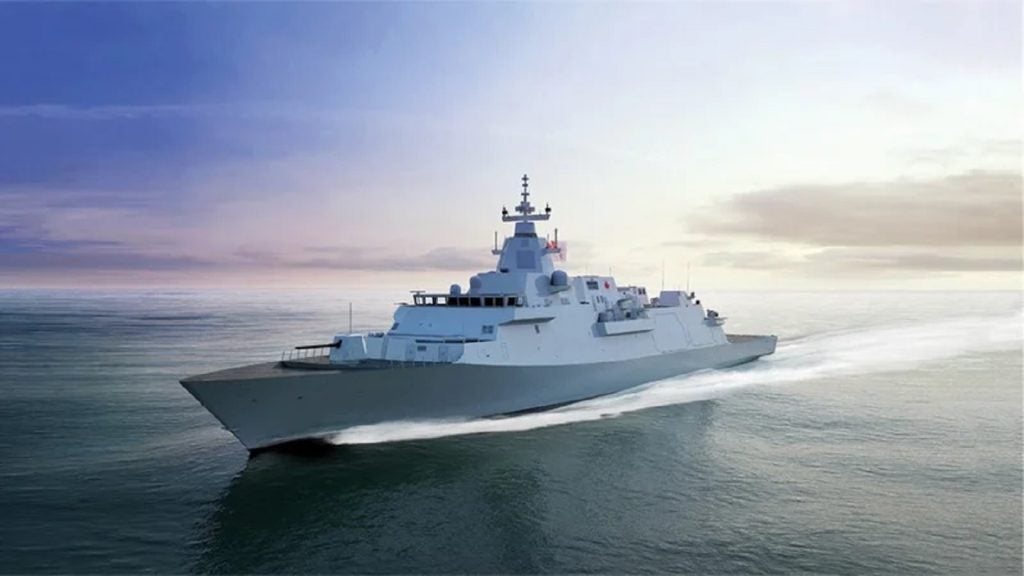Lockheed Martin has been awarded a near $64m (C$85m) contract for the establishment of the AEGIS Canadian Surface Combatant (CSC) land-based test site in New Jersey, USA, funded through Foreign Military Sales (FMS) from Canada.
The award is the latest step in the development of the CSC programme, which is intended to deliver new multirole frigates to the Royal Canadian Navy (RCN). In 2019, the BAE Systems Global Combat Ship design was chosen, which is also being used for the UK’s own Type 26 frigate class currently under construction, and the Royal Australian Navy’s Hunter class warships, also under development.
In May 2021 the US State Department approved the possible Foreign Military Sale (FMS) to Canada of the AEGIS combat system for an estimated cost of $1.7bn, in a deal that would see four shipsets of AN/SPY-7 solid state radar components, among other equipment.
In a notice detailing the State Department’s FMS approval, the US Defense Security Cooperation Agency (DSCA) said the proposed sale would increase Canadian maritime forces’ interoperability with the US and allied forces, as well as their ability “to contribute to missions of mutual interest” by delivering the first AEGIS-capable Canadian Surface Combatant.
“This will significantly improve network-centric warfare capability for the US forces operating globally alongside Canada,” the DSCA stated at the time.
Although originally designed for naval warfare, the AEGIS system has been used effectively as a part of a land-based missile threat detection network in the United States, Poland, and Japan. The creation of a land-based test site for the CSC programme will enable critical system to be tested and understanding gained by the would-be new operators.
The AEGIS system in its naval guise is operated by the US Navy, the Japan Maritime Self-Defense Force, the Spanish Navy, the Royal Norwegian Navy, the Republic of Korea Navy, and the Royal Australian Navy.
Canadian Surface Combatant programme
The CSC project is the RCN's acquisition programme to build 15 multirole ships which will replace both the retired Iroquois-class destroyers and the in-service Halifax-class frigates. According to GlobalData the programme is estimated to cost between $56bn and $60bn, with the warships being bult by Irving Shipbuilding at its Halifax Shipyard.
Once in service, the CSC will have the capacity to conduct air, surface, sub-surface and information warfare missions simultaneously on both open ocean and highly complex coastal environments. Its AEGIS system will focus on surface-to-air threat detection and interception.
Irving Shipbuilding was appointed as the prime contractor for the CSC project definition and implementation phases in January 2015, with a sub-contract awarded to Lockheed Martin Canada for vessel design in October 2018.
In February 2019, the BAE Systems’ Type 26 Global Combat Ship was selected as the base platform design for the CSC programme.
On 8 August this year the Canadian Government announced that it would invest a further $463m (C$620m) in the CSC project to accelerate construction to ensure timely delivery to the RCN.
Expected to displace around 7,800 tonnes, the CSC will be capable of speeds in excess of 27kt and feature a full spectrum range of weapons systems, including a 127mm main gun and two 30mm secondary weapon systems, MBDA’s Sea Ceptor close-in air defence system, and accommodate missile such as RTX’s SM-2 or Evolved Sea Sparrow in its Mk41 vertical launch system.
Additionally, Mk54 lightweight torpedoes and Kongsberg’s Naval Strike Missile can also be fitted to the platform.
According to GlobalData’s Canada Defense Market 2022-2027 report, naval vessels and surface combatants are the country’s largest defence market sector, with a value of £22.5bn over the forecast period.









